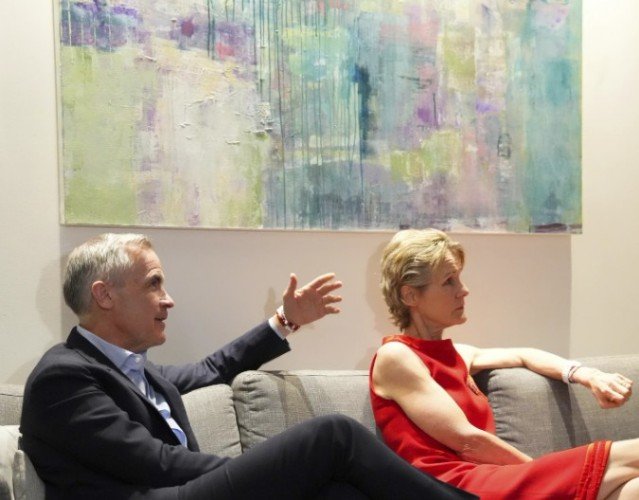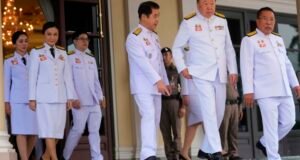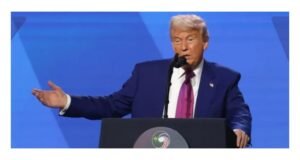
The Canadian Broadcasting Corporation projected Monday that Prime Minister Mark Carney’s Liberal Party has won Canada’s federal election, marking a stunning political turnaround fueled by rising nationalism in response to U.S. President Donald Trump’s provocative remarks and threats.
Initially forecast to lose power following Justin Trudeau’s resignation and mounting economic challenges, the Liberals reversed their fortunes in dramatic fashion. Carney, a former Bank of Canada and Bank of England governor, assumed leadership of the party earlier this year after Trudeau stepped down amid public frustration over inflation and immigration levels.
Trump’s aggressive stance toward Canada — including threats of economic coercion, tariffs, and even suggestions that Canada should become the 51st U.S. state — galvanized Canadian voters and gave the Liberals a renewed surge of support. The resulting nationalist sentiment proved decisive, boosting Carney’s chances and overshadowing domestic discontent, AP reports.
While the Liberals are projected to win the most seats in the 343-seat House of Commons, it remains uncertain whether they will secure an outright majority. Without one, Carney would need backing from opposition parties to govern.
The election took place just days after a deadly car-ramming incident in Vancouver, which briefly suspended campaigning. Authorities have ruled out terrorism and identified the suspect as a local man with mental health issues.
Polling stations across Canada closed Monday evening, and results began trickling in shortly after. All votes were cast using traditional paper ballots, counted by hand at each polling site. Elections Canada expects the majority of votes to be tallied by election night, though official results will take months to finalize.
Canadian elections do not directly determine the prime minister. Instead, voters elect local representatives, and the leader of the party with the most seats typically forms the government. If no party secures a majority, the largest party may form a minority government or enter into a coalition.
Voters reported a desire for change, though opinions varied. Some expressed dissatisfaction with the Liberals over economic hardships, while others feared the Conservative Party leader Pierre Poilievre’s alignment with Trump’s rhetoric. Poilievre, for his part, urged Trump to refrain from interfering in Canadian politics, stating that Canadians alone decide their country’s future.
Meanwhile, the slogan “Elbows up,” borrowed from hockey legend Gordie Howe, gained popularity as a symbol of Canadian defiance. Comedian Mike Myers appeared in ads with Carney wearing “Never 51” jerseys, reinforcing the rejection of Trump’s annexation comments.
Carney has pledged to strengthen Canadian unity and economic independence by pushing for the removal of interprovincial trade barriers by July 1. He emphasized that Canada must rely on itself rather than foreign powers, stating, “We can give ourselves far more than Donald Trump can ever take away.”
In a final push, Trump claimed Canada is economically dependent on the U.S., downplaying the value of its exports and asserting America could function without Canadian resources — remarks widely rejected by economists and Canadian officials.
As Canadians await final results, early voting turnout hit a record high with over 7.3 million ballots cast before election day, signaling deep voter engagement amid one of the most nationally charged elections in recent history.
 Weekly Bangla Mirror | Bangla Mirror, Bangladeshi news in UK, bangla mirror news
Weekly Bangla Mirror | Bangla Mirror, Bangladeshi news in UK, bangla mirror news







